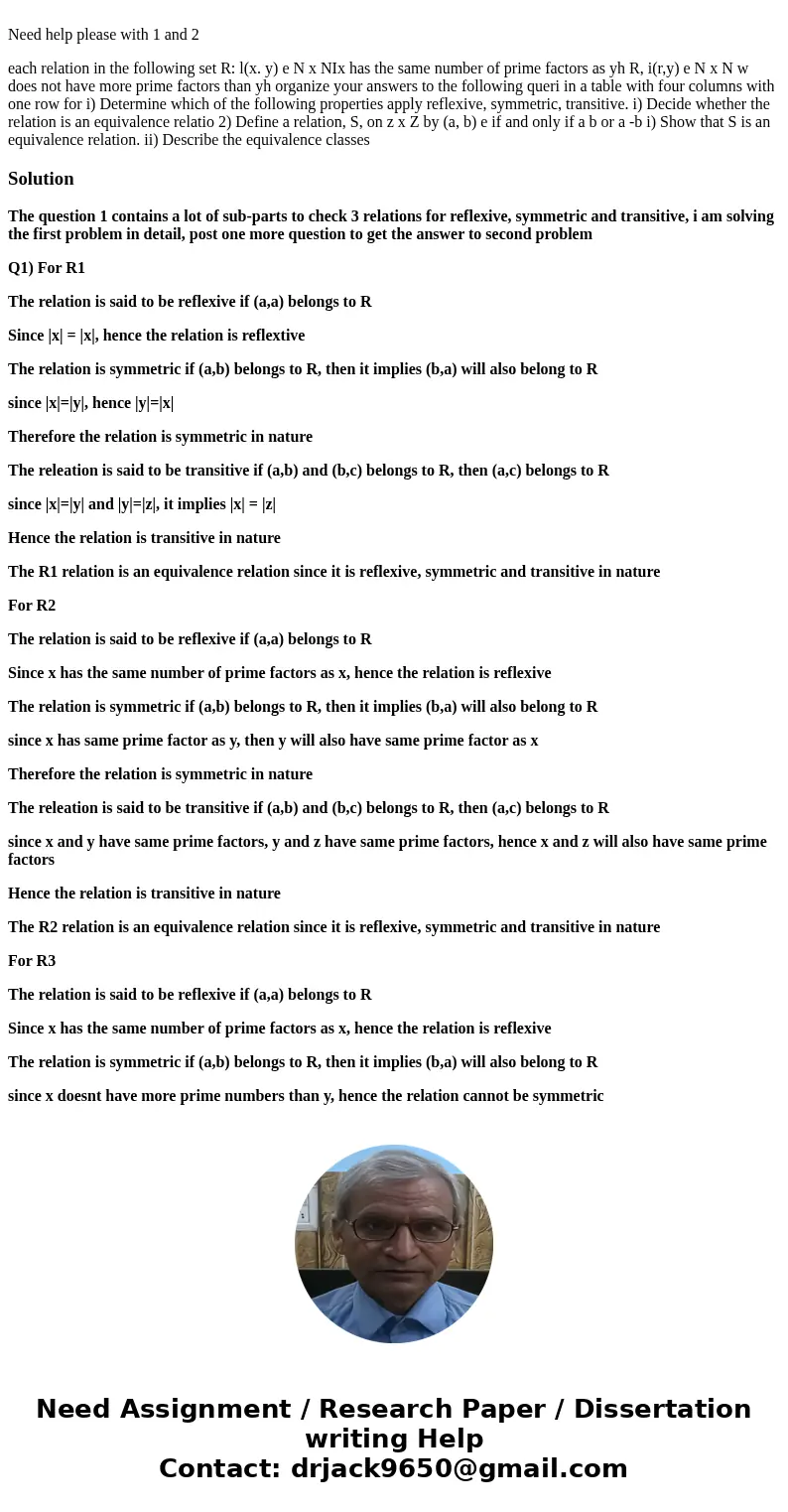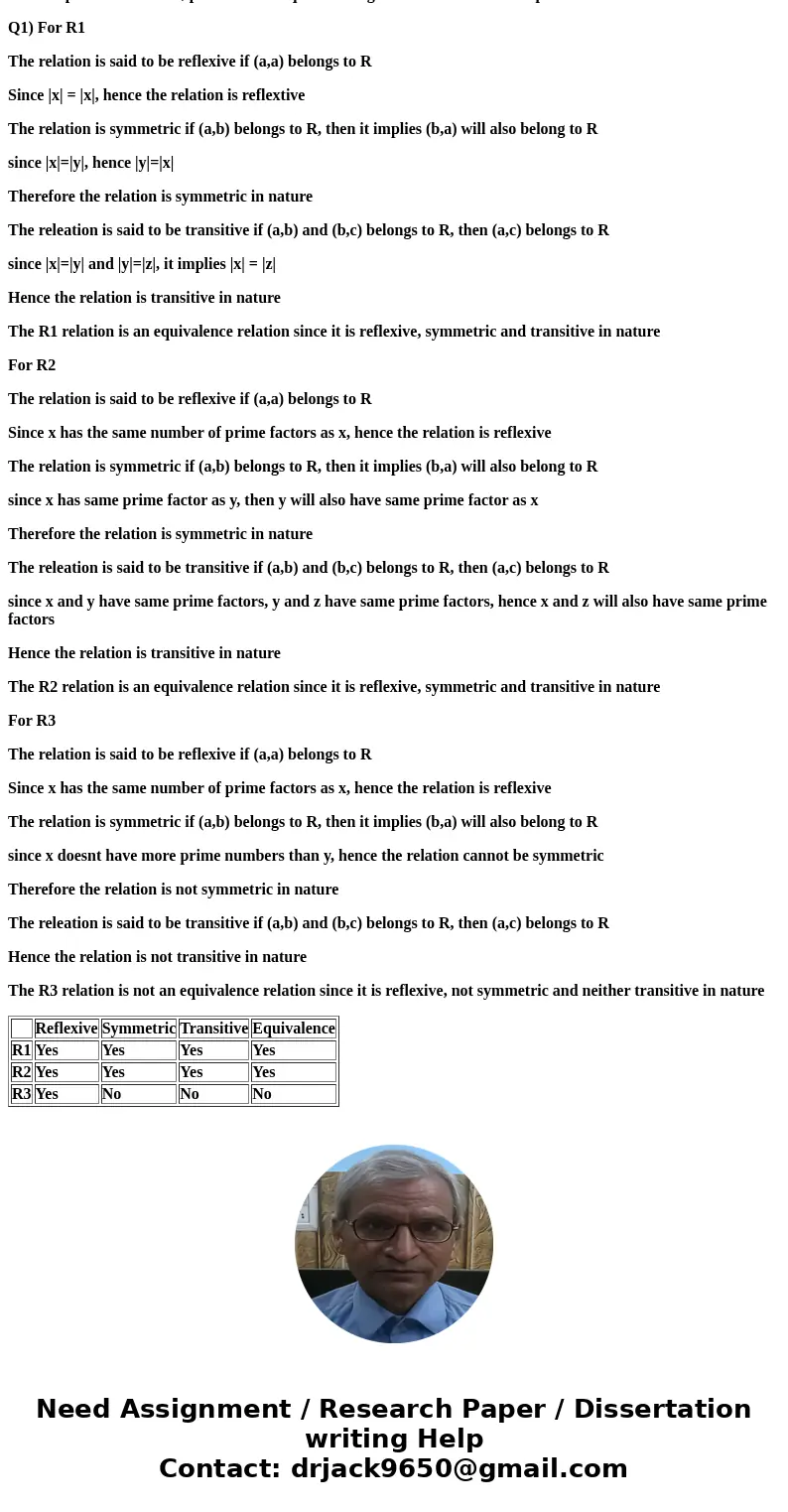Need help please with 1 and 2 each relation in the following
Need help please with 1 and 2
Solution
The question 1 contains a lot of sub-parts to check 3 relations for reflexive, symmetric and transitive, i am solving the first problem in detail, post one more question to get the answer to second problem
Q1) For R1
The relation is said to be reflexive if (a,a) belongs to R
Since |x| = |x|, hence the relation is reflextive
The relation is symmetric if (a,b) belongs to R, then it implies (b,a) will also belong to R
since |x|=|y|, hence |y|=|x|
Therefore the relation is symmetric in nature
The releation is said to be transitive if (a,b) and (b,c) belongs to R, then (a,c) belongs to R
since |x|=|y| and |y|=|z|, it implies |x| = |z|
Hence the relation is transitive in nature
The R1 relation is an equivalence relation since it is reflexive, symmetric and transitive in nature
For R2
The relation is said to be reflexive if (a,a) belongs to R
Since x has the same number of prime factors as x, hence the relation is reflexive
The relation is symmetric if (a,b) belongs to R, then it implies (b,a) will also belong to R
since x has same prime factor as y, then y will also have same prime factor as x
Therefore the relation is symmetric in nature
The releation is said to be transitive if (a,b) and (b,c) belongs to R, then (a,c) belongs to R
since x and y have same prime factors, y and z have same prime factors, hence x and z will also have same prime factors
Hence the relation is transitive in nature
The R2 relation is an equivalence relation since it is reflexive, symmetric and transitive in nature
For R3
The relation is said to be reflexive if (a,a) belongs to R
Since x has the same number of prime factors as x, hence the relation is reflexive
The relation is symmetric if (a,b) belongs to R, then it implies (b,a) will also belong to R
since x doesnt have more prime numbers than y, hence the relation cannot be symmetric
Therefore the relation is not symmetric in nature
The releation is said to be transitive if (a,b) and (b,c) belongs to R, then (a,c) belongs to R
Hence the relation is not transitive in nature
The R3 relation is not an equivalence relation since it is reflexive, not symmetric and neither transitive in nature
| Reflexive | Symmetric | Transitive | Equivalence | |
| R1 | Yes | Yes | Yes | Yes |
| R2 | Yes | Yes | Yes | Yes |
| R3 | Yes | No | No | No |


 Homework Sourse
Homework Sourse